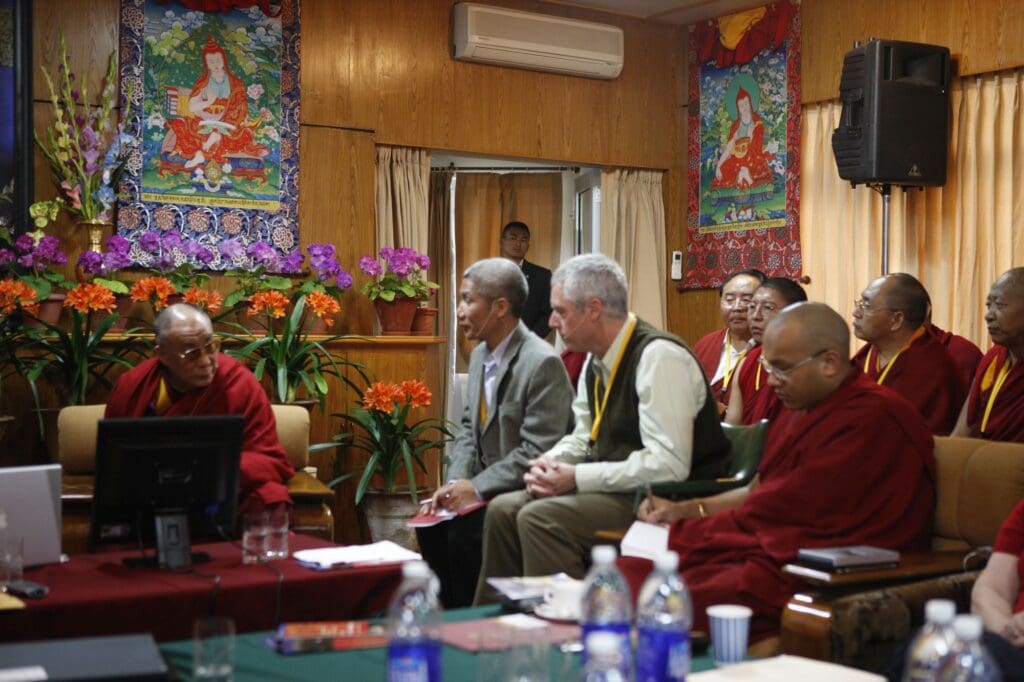Filmed during Mind & Life Institute’s “Mind & Life XVIII: Attention, Memory, and Mind” on April 6-10, 2009.
Embodiment and Intersubjectivity: Empirical and Phenomenological Approaches
SPEAKER: Shaun Gallagher
Two themes that have become prominent in studies of consciousness and cognition: embodiment and intersubjectivity. We will begin by discussing recent work in embodied cognition, informed by both science and philosophical phenomenology. These studies show that embodied processes connected with posture, movement, and extra-neural processing have an effect on attention, judgment, and perception. We will also review recent scientific and philosophical studies of interpersonal relations (intersubjectivity, social cognition). How do our interactions with others shape the way we perceive the world or attend to things, as well as act? How does shared attention modulate other attentional processes? Considerations of embodiment and intersubjectivity raise interesting questions about meditation practice and whether experience is different if meditation is done alone or with others. For instance, in phenomenological analyses of normal movement and action emphasis is placed on the idea that in habitual or practiced bodily movement, one is not usually aware of what one’s body is doing (in contrast to some pathological cases). Becoming too aware of one’s body interferes with performance, when playing tennis, for example. Does proficiency in meditation involve body consciousness (a focus on the body or bodily processes – e.g., breathing) or an ability to move beyond awareness of body? Is meditation different when others are practicing it with you? Is there something like shared meditation? In working with a teacher, how does shared attention to specific meditation practices become something other than shared attention (does it get transformed into a specific kind of attention, or a specific kind of inattention) – and what changes (what is lost or gained) when it ceases to be shared attention?
Education, Application, Buddhism, and Technology
Group discussion among all the speakers and audience will focus on future lines of research and collaboration in psychological, neurobiological, and phenomenological studies of meditation and contemplative practice.
PANELISTS:
His Holiness the 14th Dalai Lama
Adele Diamond
Rupert Gethin
Amishi Jha
Thupten Jinpa
David Meyer
Elizabeth Phelps
Cliff Saron
Anne Treisman
B. Alan Wallace
Participants

Shaun Gallagher, PhD
University of Memphis


